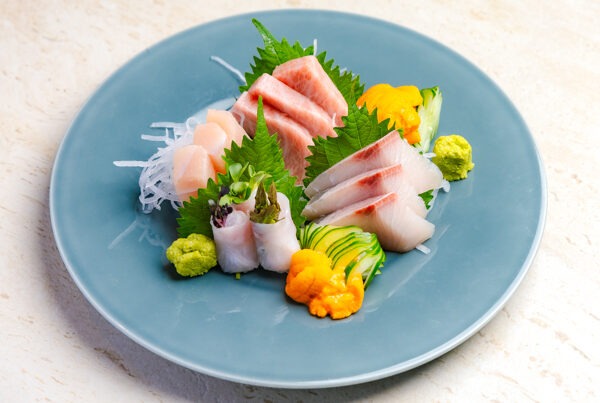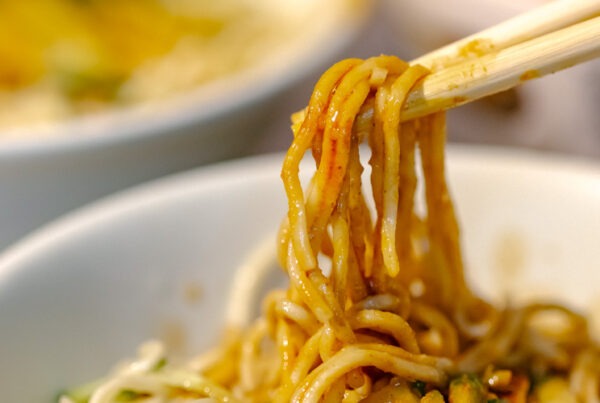The Success Story of an Iranian Chef in Taiwan
TEXT / OWAIN MCKIMM
PHOTOS / VISION
Opening a small restaurant serving one’s native cuisine has been done by many a foreigner trying to carve out a long-term niche for themselves in Taiwan. Far more uncommon, however, is for a foreigner to take on the challenge of serving up adopted-country fare to the locals. With food being such an important and exalted part of Taiwanese culture, you meddle with the country’s signature dishes at your peril. Davod Bagherzadeh, hailing from Iran, is one such daredevil. And the fact that his restaurant is still in business and thriving after more than a decade is proof that his personal spin on the country’s national dish more than passes muster with Taiwan’s discerning gourmands.
Bagherzadeh came to Taiwan as a young man in the mid-nineties. “I was a real backpacker,” he says with pride. “I had one bag, and I was traveling around Europe when a friend of mine said ‘Hey, do you want to go to Taiwan?’” Knowing barely anything about the country but keen for a new and exciting destination, Bagherzadeh, along with a few friends, soon after touched down on the island.

He decided to stay, but making a living running his own business did not come easy. During the ten or so years before he began his Laowai Yipin (“Foreigner’s First-Class”) Beef Noodle Restaurant, Bagherzadeh had to throw in the towel on two business ventures – an import company dealing in Persian rugs and a Persian restaurant serving dishes from his native Iran.
Speaking candidly about the latter, he says, “Taiwanese people just didn’t go for it. If you want to make food popular with the locals, you have to change the flavor to suit the local tastes, and I just didn’t want to do that.” As a result, diners would visit perhaps once or twice as a novelty, but would not become regular customers.

What’s more, the practicalities of this kind of catering also caused problems.“To eat meals like I was serving takes a long time. You have soup, salad, a main course, dessert. It takes maybe an hour and a half.” And with limited tables and only a two-hour lunch window, Bagherzadeh simply could not get the turnover needed to be profitable.
Realizing that the Taiwanese dining culture is all about speed and convenience, with diners valuing food that is filling, flavorful, and fast, Bagherzadeh knew that he had to approach things from a completely different angle. Having briefly considered selling beef noodles in the past, this easy-to-consume Taiwanese classic now seemed ideal.

“After I’d closed the Iranian restaurant, I went to one of my wife’s friend’s restaurants – a beef noodle place – and spent three days there, just observing. Then I came home and tried making my own.”
However, getting the recipe just right wasn’t easy. Even after extensive experimentation, many tastings, and an awful lot of beef wasted, something was still missing. Having grown up on a diet of his mother’s lovingly slow-cooked Iranian dishes, Bagherzadeh was used to a certain depth of flavor that the Taiwanese method of cooking beef noodles seemed unable to provide.
“Taiwanese food is often cooked very quickly by Iranian standards,” Bagherzadeh says. “Even making something simple like Persian rice takes a lot of time. So whenever my mother made a soup or stew, it was always very rich.”

To make a stock that truly satisfied his palate, then, Bagherzadeh knew that he had to put in the extra hours. He began boiling beef bones, first for hours, then days, until his stock achieved the right flavor profile. “We boil the beef bones for four days – that’s how long it takes for the stock to be perfect,” he says. And when it comes to putting the rest of the broth together, Bagherzadeh has another special weapon – a blend of twelve Persian spices, five of which he must source from his friends abroad as they are impossible to find in Taiwan.
Other than his special spices and slow-cooked beef stock, Bagherzadeh uses just a few other ingredients – carrot, onion, tomato, ginger, and garlic – boiling them for two hours and then letting the braised mixture sit overnight to develop flavor.

And indeed, the singular taste of his broth has given Bagherzadeh a strong reputation among beef noodle aficionados. A little over a year after opening his beef noodle restaurant in late 2007, Bagherzadeh’s braised beef noodles won third place at the Taipei International Beef Noodle Festival (where, as you can imagine, the competition was fierce indeed), and since then he’s had patrons from all over the country and abroad seek out his restaurant just to try his unique broth style.

It is clearly important for Bagherzadeh (now a long-time resident of Taiwan, fluent in Chinese, and with a Taiwanese wife and children) that his business stands or falls on the quality of his food, not on his novelty value as a foreigner cooking Taiwanese cuisine. The restaurant’s décor – that of a quintessential beef noodle restaurant, even down to the framed calligraphy and slightly faded photos of celebrity diners on the walls – is testament to his desire to succeed on local terms and by local (and thus the most exacting) standards.

In fact, the only thing that identifies his restaurant as being anything other than Taiwanese-owned is the name (which Bagherzadeh says many people believe is a joke), and the mention of saffron in two of his menu’s dumpling dishes.
Yet despite the restaurant’s disarming Taiwaneseness, Bagherzadeh still often comes up against a fair amount of disbelief. “When people come in for the first time and see me taking their order, their eyes always widen and they look at me in shock! They ask, ‘How can a foreigner cook traditional Taiwanese food?’”
This disbelief, however, seldom lasts very long – about the same amount of time it takes to finish a bowl of Bagherzadeh’s beef noodles. And more often than not after trying once, Bagherzadeh says, people become hooked.

Laowai Yipin Beef Noodle Restaurant
(老外一品牛肉麵)
Add: No. 403, Jilin Road, Zhongshan District, Taipei City
(台北市中山區吉林路403號)
Tel: (02) 2585-3303
About the author













